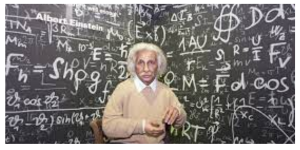The quest to become a physicist in India is often perceived as a daunting journey, laden with rigorous academic demands and formidable examinations. Nonetheless, it is a path characterized by profound intellectual fulfillment, fostering an extraordinary understanding of the universe. This article endeavors to elucidate the multifaceted approach to embarking on this noble profession, intertwining practical steps with deeper reflections on the intrinsic allure of physics.
1. Cultivate a Strong Educational Foundation
To commence the journey toward becoming a physicist, the first requisite is a robust educational foundation. Aspiring physicists should immerse themselves in the study of mathematics and science from an early age. Subjects such as calculus, algebra, and classical mechanics are pivotal. High school curricula should not only emphasize theoretical knowledge but also encourage experimental inquiry. This dual focus cultivates a mindset attuned to both abstract thinking and practical application, which is indispensable in the field of physics.
Moreover, engaging in science fairs and extracurricular activities can enhance one’s analytical skills. Participation in physics clubs or quizzes can stimulate an interest in complex phenomena and scientific debate. Thus, early exposure to the realm of physics is crucial; it lays the groundwork for advanced study and inquiry.
2. Pursue Higher Education
Upon completing secondary education, aspiring physicists in India typically pursue a Bachelor’s degree in Physics or a related field, such as engineering or applied mathematics. Renowned institutions like the Indian Institute of Technology (IIT) and the Indian Institute of Science (IISc) offer esteemed programs that not only cover fundamental physics concepts but also delve into specialized domains such as quantum mechanics, thermodynamics, and electromagnetic theory. Admission into these institutions often requires success in competitive entrance examinations, manifesting the meritocratic nature of Indian academia.
A Bachelor’s degree serves as a significant steppingstone; however, many physicists opt for further studies. A Master’s degree or Ph.D. is often essential for specializing in research or academia. This advanced education fosters a rigorous engagement with esoteric topics, paving the way for original research contributions that propel the scientific community forward.
3. Engage in Research Opportunities
Engaging in research is a quintessential aspect of a physicist’s journey. During postgraduate studies, students should actively seek out research projects that resonate with their interests. Collaborating with professors on ongoing research can provide invaluable insights into the scientific process, enabling students to cultivate critical thinking and problem-solving skills.
Internships and workshops conducted by esteemed research institutions, such as the Tata Institute of Fundamental Research (TIFR) or the S.N. Bose National Centre for Basic Sciences, offer platforms to engage in empirical work. This hands-on experience is instrumental, as it bridges theoretical knowledge with real-world applications. Participation in conferences and symposiums also provides opportunities to present research findings and engage with a community of scholars, further refining one’s intellectual acumen.
4. Develop a Specialized Skill Set
In the contemporary scientific milieu, physicists must cultivate a diverse skill set that transcends mere theoretical knowledge. Proficiency in computational techniques, coding in languages such as Python or MATLAB, and familiarity with data analysis tools are imperative in modern physics. Furthermore, skills related to experimental methods, statistical analysis, and critical assessment of literature enhance a physicist’s versatility in various domains.
Additionally, communication skills are indispensable. The ability to articulate complex ideas succinctly—whether through teaching, publishing articles, or presenting at conferences—is crucial. Collaborative projects often necessitate interdisciplinary dialogue, making clear communication navigationally advantageous.
5. Understanding the Emotional and Intellectual Allure of Physics
Beyond the academic rigors, there resides an innate fascination that draws individuals toward the discipline of physics. The quest to unravel the fundamental laws governing the universe engenders a sense of wonder and intellectual curiosity. Phenomena such as black holes, quantum entanglement, or the fabric of spacetime compel not only scientists but society at large to ponder existence itself.
This existential inquiry underpins why many seek to become physicists. The prospect of contributing to groundbreaking discoveries, whether unraveling the mysteries of the universe or developing new technologies that enhance human life, adds layers of purpose to this career path. Such motivations transcend monetary considerations, fostering a commitment to advancing knowledge for the collective good.
6. Career Pathways and Future Prospects
Upon earning advanced degrees, physicists in India can explore a multitude of career avenues. Many opt for academia, engaging in teaching and research at universities. Others may pursue careers in governmental research organizations, such as the Indian Space Research Organization (ISRO) or the Defence Research and Development Organisation (DRDO), where applied physics plays a critical role in national development.
Industries increasingly seek physicists for their analytical prowess and innovative problem-solving abilities. Positions in sectors such as technology, finance, and healthcare expand the horizons of employment opportunities. With the world evolving rapidly, the demand for physicists who can adapt their expertise is on the rise.
Conclusion
Becoming a physicist in India is a multifaceted endeavor requiring dedication, intellectual rigor, and an unwavering sense of curiosity. The interplay between rigorous academic training, research engagement, and a profound appreciation of the universe’s intricacies constitutes the essence of this illustrious profession. As one navigates this path, the journey itself becomes a discovery, echoing the very principles that characterize the field of physics.












